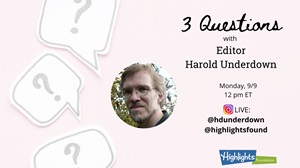Thanks to Alan Gratz (alangratz.com) for this guest post about making an outline before you start writing.

The first outline I ever wrote for a book was for Samurai Shortstop. I’m not Japanese, I had never been to Japan, and I didn’t even have any Japanese friends—so as you can imagine, I had to do a lot of research. I read about thirty books about Japan, everything from general histories to diaries of travelers from the Meiji Period, and when I was finished I had an inch-thick notebook full of historical details I wanted to use. But how to organize them? I knew I couldn’t be flipping back through that notebook looking for this bit of information, or that bit. When you’re writing, you want to be putting together beautiful words, sentences, and paragraphs. You want to be focused on metaphors and allusions and beats and plot points.
So for the very first time, I created an outline. I broke the story down by chapter, writing a paragraph-long summary of each chapter on a different page in a Word document. Then I went back through my notes one line at a time, and every time I came across a bit of research that told me, for example, what a shinto shrine looked like, I moved that bit to my chapter one page, which takes place in a shinto shrine. A note about what the Japanese ate for breakfast? I moved that to the breakfast scene in chapter seven. A line or two about how to write a death poem? Back to chapter one again. And so on, and so on. When I was finished, I had a notebook full of chapters telling me exactly what happened, followed by all the historical research I needed to tell just that part of the story. When the time came to actually write the novel, I was able to open my notebook in the morning, turn to the next chapter, read what was going to happen, and then start writing.
Separating what happens from how to tell it—that is, separating the story—planning process from the story writing process—has been the biggest technical leap forward in my career. Those are two very different processes, but most writers try to tackle them both at the same time. For me, doing both at the same time was the root of all my writer’s block. I still sit at my computer, banging my head on the keyboard as I try to figure out WHAT HAPPENS NEXT, but that’s the outline phase. I’m not expecting to come out of my office with seven pages written that day, and therefore don’t come away thinking I’ve wasted my time. Just figuring out the story, not how I’m going to tell it, is my only work that day.
Samurai Shortstop was the first book I created an outline for, and the first book I sold. As you might guess, I’ve used an outline ever since!






